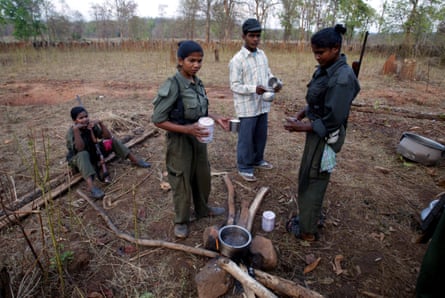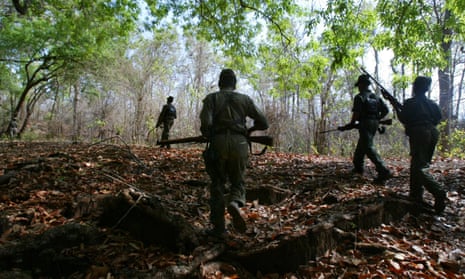It could just be true, as Inder Malhotra was suggesting this week, that the Midnapore lynchings are the start of a popular resistance to the Naxalites in India. Personally, I would doubt it, even if one could be sure that the men who were strung up after butchering a village teacher were genuine Naxalites and not just anybody’s hoodlums. Naxalite tends to be an easy label applied by worried officialdom to any thug these days.
Naxalite is a word scarcely within our political vocabulary yet, though it ought to be, for it has the same etymology as Bolshevik and Red Guard. And in the next year or two it could settle India’s future for several generations at least. It represents the most extreme form of communism in a country where every other political prescription has so far been found badly wanting.
The name comes from the village Naxalbari in the North of West Bengal. This is jungle and tea garden country, perfect for guerilla warfare, marvellous for infiltration. Naxalbari itself is only four miles from Nepal, a mere 80 miles from Tibet and the Chinese Communists: and on the Indian scale of things that makes it right next door. This is where the Indian Revolution (as history may yet see it) began in 1967.
Twice in the preceding thirty years there had been conflict up there between the peasants and the landholders. It now broke out again, under the auspices of the Communist Party of India (Marxist) on the threshold of an election in which it was to win a dominant position in a so-called United Front Government of West Bengal. Land was forcibly seized by armed gangs. Donations were extracted under threat of arson and murder. And after the election had been fought and won, police wishing to intervene in this pillage were hamstrung by their new political bosses in Calcutta.

Naxalbari booked itself immortality of a kind on May 25, 1967. On that day the police heard that their station was to be attacked. An inspector and 20 constables set off for a railway level-crossing to disperse the mob. They found themselves surrounded and they fired. The dead, remarkably, were almost all women and children. At a subsequent inquiry it was discovered that the mobsters had, in fact, forced women to march at their head as a cover, and in at least one case this was under the threat of strangling a baby. Radio Peking, of course, didn’t see it that way. What had happened in the Naxalbari district was hailed as “the front paw of the revolution.”
By infiltration and by guerrilla warfare, the Naxalites have in the past three years become an ominous power in the land. Their beautifully stencilled portraits of Mao Tse-tung are now scattered across every other wall in Calcutta. They are not by any means entirely peasant mobsters. What they believe, after all, makes them blood brothers to many kids out of the Sorbonne, out of Berkeley and out of the LSE, and the hapless Miss Tyler is now in an Indian gaol to illustrate the point.
And, sickened as many Indians undoubtedly are by Naxalite thuggery, two terrible truths tend to stifle any real prospect of a people’s counter-revolution against them. One is that the Naxalites are far too frightening and well organised to be challenged by peasants in the rural areas where they are concentrated. The other is that if you are an Indian peasant the Naxalite formula of total anarchy must by now seem the only conceivable way to salvation out of the exploited poverty into which you were born, in which you live, and by which you will surely die in the foreseeable future.
Democracy at present is hanging on by its teeth in India, and its fate almost depends on the strength of mind and body remaining in Mrs Gandhi. She is being squeezed more and more, by people obsessed with their rotten little religious prejudices and their even more odious commercial greed. They may have less time than they think to enjoy their squalid advantages.

Comments (…)
Sign in or create your Guardian account to join the discussion